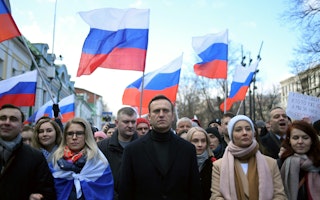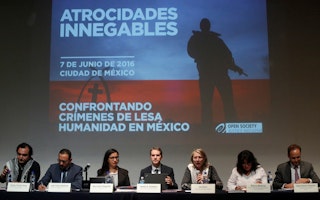As the people of many developing countries face the prospect of declining living standards, elites in a number of these countries continue to loot the public purse through grand-scale corruption. This has led to massive civil unrest in countries such as Ukraine. It has also led to increasing calls to end the climate of impunity and do more to tackle the crimes of high-level corruption and money laundering. As reported in the New York Times, the U.S. government has recently stepped up its efforts to go after kleptocrats and Western firms that collude with and enable them.
To date, it has proven very difficult, though not impossible, to use ill-gotten assets to provide redress for the people of countries whose leaders engaged in corruption on a massive scale. Too often, the principle of state sovereignty has led to ill-gotten assets being returned to governments with poor records on corruption and enforcing the rule of law, ignoring the interests of the citizens who are the real victims of grand corruption.
This conference will discuss potential ways to provide remedies for mass citizen victims of grand corruption, based on case studies from Uzbekistan, Equatorial Guinea, and Ukraine.
Panel 1: Victims of Grand Corruption: Who is Going to Represent Them?
- Ken Hurwitz is senior legal officer on anticorruption for the Open Society Justice Initiative.
- Shermamat Abdullozoda is a former Uzbek civil servant.
- Daria Kalenyuk is executive director of the Anticorruption Center, Ukraine.
- Jeff Goldstein (moderator) is a senior policy analyst for Eurasia at the Open Society Foundations.
Panel 2: Assets Recovery as Remedy for the Victims: Limitation on State Sovereignty
- Daniel H. Claman is senior trial attorney for the U.S. Department of Justice, Asset Forfeiture and Money Laundering Section.
- Richard E. Messick is a consultant on anticorruption and rule of law issues.
- Linda J. Candler is a former prosecutor with the U.S. Department of Justice, Office of International Affairs and Tax Divisions.
- Ken Hurwitz (moderator) is senior legal officer on anticorruption for the Open Society Justice Initiative.
Read more
Navalny’s Legacy
Night Country: The Mysterious Death of Alexei Navalny in Putin’s Russia

Alexei Navalny’s death underscores the paradox of Russian power—that the voice of one man imprisoned and isolated in the Arctic should be such a threat.
Justice and Rights
Using the Law to Advance Open Society: A Timeline

It’s been 20 years since the Justice Initiative was launched to help advance open society values through human rights litigation, advocacy, and legal empowerment. This is a timeline of the Initiative’s biggest milestones.
Investigative Journalism
This Reporter Helped Free 1,600 Yemeni Prisoners

Yemen is one of the most dangerous countries on earth for journalists. Yet against all odds, Wael Sharha conducted an investigation into unlawful detainments. The story of how his work resulted in 1,600 inmates being freed.